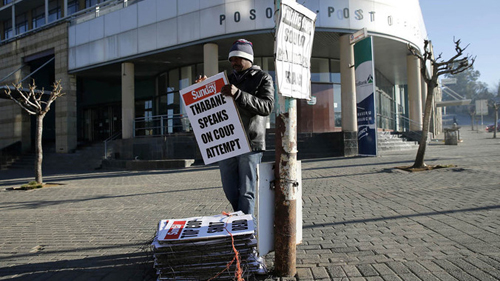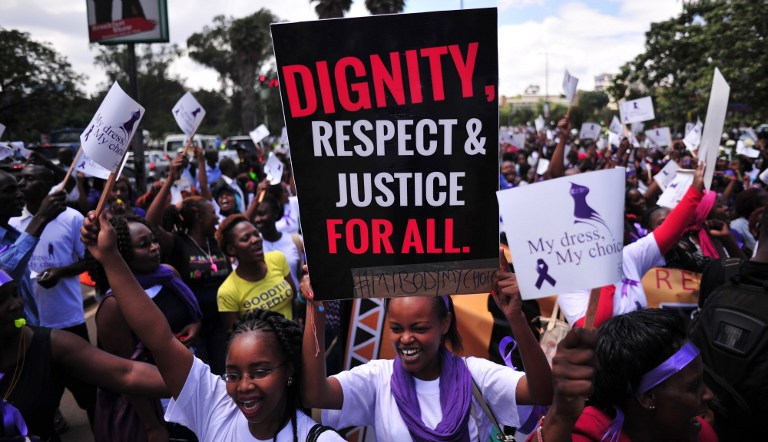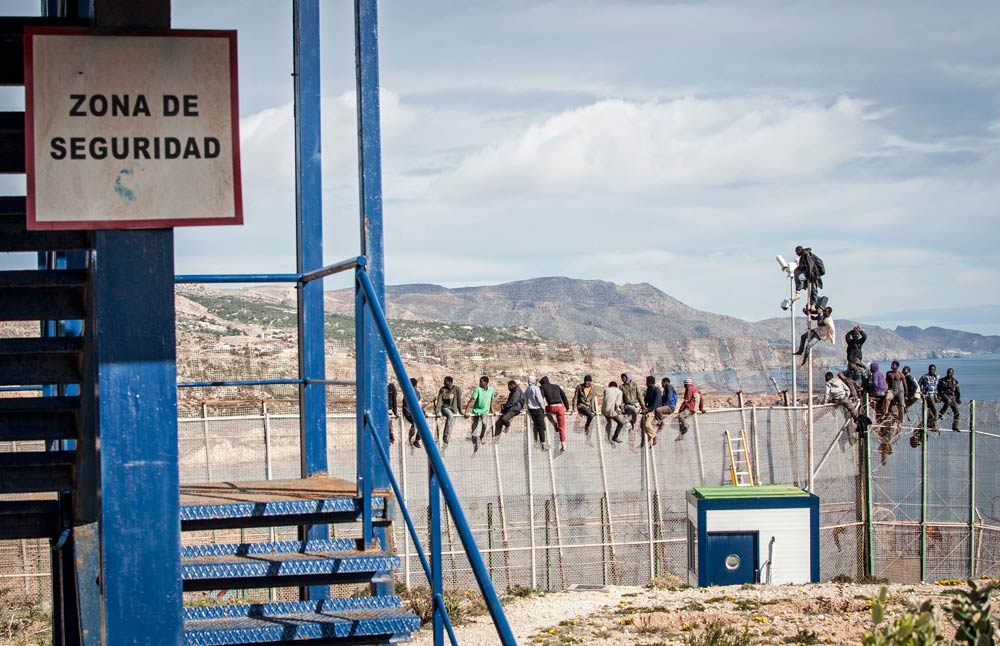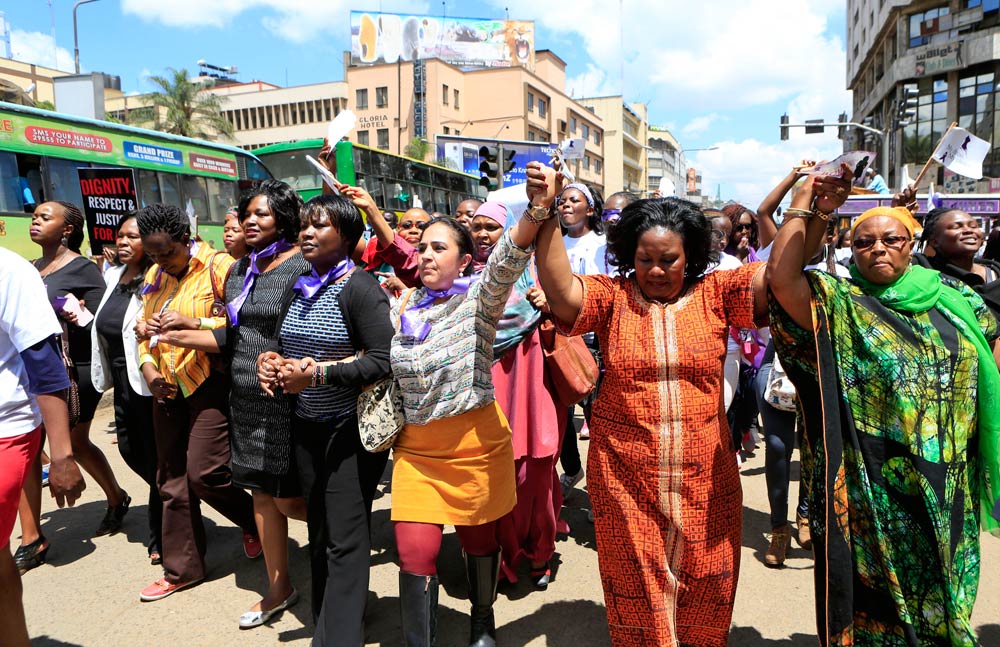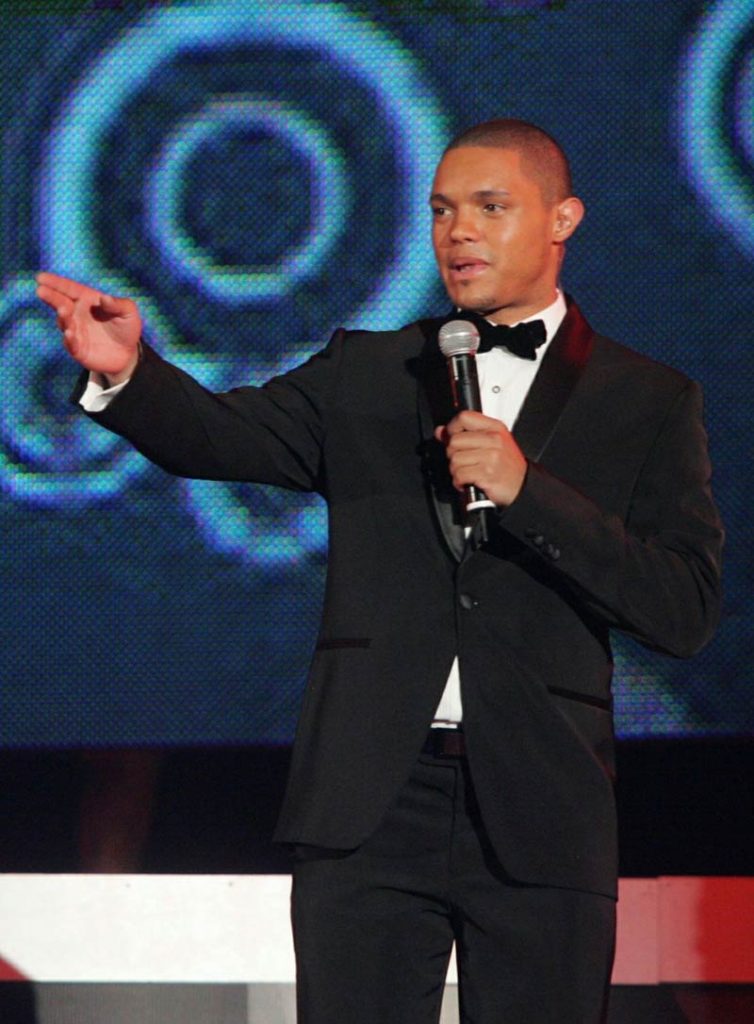
A few weeks ago, I helped organise an event in Johannesburg which convened artists from across east and southern Africa. What I thought would be a straightforward process, however, soon became a logistical nightmare with visa challenges for those attending, particularly from Kenya and Uganda.
The list of documents required seemed endless, as did the frustrated back and forth with participants. In the end, some ran out of time to process their visas and therefore did not attend. Others came in a few days after the event had begun, their visas providing legal status for the exact number of days of the event. Single entry. Non-negotiable.
I struggle to accept the arduous process of legalising movement within this continent, and find it hypocritical that as African nations, we decry the same western standards of legality that we then go on to reinforce.
Rules are rules, you say. But these rules suck.
A viral video of a satirical-cum-social commentary exchange between Jon Stewart and Trevor Noah on The Daily Show, is the reason for my latest introspection.
Received with widespread positivity and affirmation, I have been struggling to master the same emotions towards it.
Among the range of stereotypes and issues it broaches, we find Ebola and reference to the precarious race relations in the US which have recently combusted in the face of the non-indictment of white officers, Darren Wilson and Daniel Pantaleo, in connection with the deaths of two black American men, Michael Brown and Eric Garner. At the same time, the revelations of the #CrimingWhileWhite hashtag have returned white privilege in America into sharp focus.
The interchanges between Stewart and Noah are witty, and initiate discussion on a host of complex and important issues.
And also, we see Noah – even if he does provide commentary on his feelings of insecurity within the USA because of his race – corroborate the notion of the ‘American dream’. After all, here is a young successful comedian from South Africa, whose exponential growth has culminated in his making his mark on that most prized entertainment real estate that is the US of A.
While often controversial, Noah’s navigation of race in South Africa has – in large part, because of his own mixed heritage – provided a space where comedy cannot instantly be condemned as racist by virtue of the comedian’s race.
In one of his skits that still sticks out in my mind, Noah imitates a white South African who warns him that he’ll hit him so hard, he won’t know whether he’s black or white.
As the punchline to the joke, Noah shrugs his shoulders and raises his hands in comical apathy.
It is again, this fluidity of identity that serves him well in the USA. There – unlike in South Africa – he is not termed ‘coloured’. He is black, or mistaken for Latino, if his performances are to be understood to be based on his lived reality.
But most uniquely of all, he is African.
Where Chris Rock or George Lopez (and many others) might meet the comedic needs of America’s various non-white audiences, Noah’s is not an America he can navigate without the appendage of his Africanness.
And it is this Africanness that constitutes my indifference to his latest skit.
Under the broad banner of Africanness, the sort of injustices he calls out about America ironically constitute the injustices that many Africans live every day in South Africa. Additionally, the similarity of the US and South Africa’s current racial combustion is uncanny, and eerily so.
Just last week, a video surfaced of a group of white bikers attacking a black petrol attendant after he reportedly asked one of them – who was smoking – to move away from a petrol pump. Julius Malema, leader of the Economic Freedom Fighters party, was involved in more controversy in October after an altercation with Cassie Moller. As his defence, Malema stated that Moller had used racially derogatory language and words – including kaffir – on black restaurant staff. At about the same time, musician Steve Hofmyer publicised sentiments that black people were the architects of apartheid.
In an article on why South Africa largely resists the rest of Africa, Sisonke Msimang states the following;
“In the democratic era we have converted the hatred of Africa into a crude sort of exceptionalist chauvinism. South Africans are quick to assert that they don’t dislike ‘Africans.’ It’s just that we are unique…”
The ideas and associations that both nation spaces – the USA and South Africa – conjure in the minds of the rest of Africa are often interchangeable; these are places regularly described as hostile, impenetrable, xenophobic. The whole comedic gesture between Stewart and Noah therefore becomes unsettling for the similarities it easily discards for a good goad into Uncle Sam.
In the ‘Spot the Africa’ challenge, we see Africa, again, sanitisied and collapsed into one undulating territory. That this is also part of the satire is not lost on me, but the obliging game to, “just tell me which of these pictures was taken in America, and which one is from Africa” is reminiscent of the many toe-curling presentations I have had to sit through where presenters from the continent – addressing largely western audiences – ply their oration with images of the ‘real Africa’. This ‘real Africa’, usually featuring night scenes of the kaleidoscopic colours of traffic skating past skyscrapers in the metropolises of African capitals.
Stewart and Noah gloss over the complexities of each of their territories throughout the skit. A glaring point to ponder is when a class of Kenyan students is mistaken for students in Harlem (a stereotype within a stereotype?), and when a black child sleeping on a mouldy forlorn couch turns out not to be Stewart’s “go to” Somali stereotype, but rather a child in Detroit. In that moment, the commentary is less about the geography of territory and more about a poignant universalising politics of race.
Admittedly, I wouldn’t expect a five-minute exchange on prime time television to deconstruct these complexities in the fine detail that I write of. That people must become aware that Africa is complex and replete with its own charismas, characters and contradictions is ever necessary.
So do I disavow Noah of his right to speak? Should his Africanness be invalidated because of his South Africanness, and therefore turned to mute?
Hardly.
That the conversation has begun – and is beginning in many places and spaces – is a good thing.
Now, we await the nuance.
Fungai Machirori is a blogger, editor, poet and researcher. She runs Zimbabwe’s first web-based platform for women, Her Zimbabwe, and is an advocate for using social media for consciousness-building among Zimbabweans. Connect with her on Twitter.

